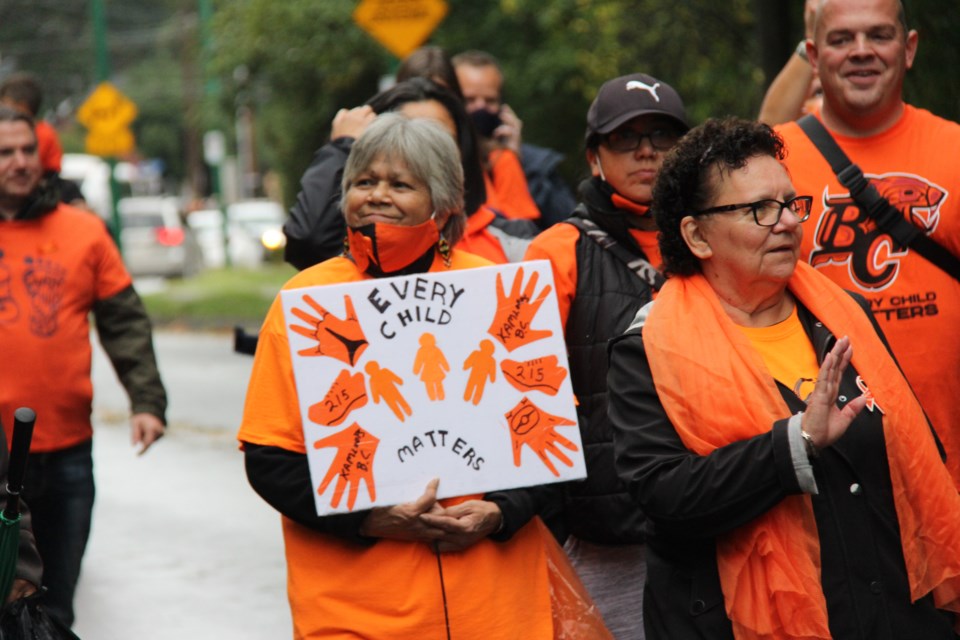Canadians may find their cranberry sauce especially bittersweet this Thanksgiving weekend, with the country's first National Day for Truth and Reconciliation held just over a week before.
While Canadian Thanksgiving has deep-rooted ties to colonialism and the attempted “Christianization” of Indigenous people, it is not nearly as politicized as it is for our neighbours in the south. In 1621 the most historically prominent Thanksgiving meal took place between the pilgrim settlers and members of the Wampanoag tribe in what is now New England. Since the 1970s, Native Americans of New England commemorate the event each Nov. 25 with a protest called the National Day of Mourning so named for the genocidal atrocities committed in the years following. On the West Coast a similar protest is held the same day titled Unthanksgiving Day.
Here in British Columbia, though, it is felt the origin of Canadian Thanksgiving has some important differences to that of the states. These differences, it seems, make it more difficult for such immediate connections between the holiday and Canada’s own attempted systematic indoctrination of Indigenous people.
Thanksgiving to take on a new meaning
Khelsilem, a member of Squamish Nation Council, explained many Indigenous families celebrate Thanksgiving much as non-Indigenous Canadians might.
“In my family, and many other families that I know, it's just like the family gets together for dinner and that’s pretty much it. Typical kind of Thanksgiving with turkey and stuffing,” Khelsilem said. “Some people do try to politicize it in the same way as the States, but it’s just kind of weird because the origins of this tradition and where it comes from are slightly different.”
Brian Rice, professor in Indigenous land-based learning at the University of Manitoba, said Thanksgiving could stand to take on more meaning to Canadians but the holiday itself isn’t going anywhere soon.
“I don’t think we’re ever going to give up Thanksgiving here,” Rice said. “But certainly people at this time, because of the Truth and Reconciliation Commission, are going to start to reflect.
“We have to remember, all where the 13 colonies existed in what we call today the United States, most of those groups were wiped out.”
Differences in origin
What are the differences, then, between the origins of Canadian and American Thanksgiving?
Peter Stevens, a historian and researcher from Ontario, who quite literally wrote the book on Canadian Thanksgiving, has an answer.
In a pattern that would repeat for decades to come, Stevens explained that some American Thanksgiving culture leached through the 49th parallel and into a fledgling Canada in the mid to late 1800s.
However, Thanksgiving in Canada was first pushed to the masses by Protestant ministers in Ontario around the time of confederation.
"Their idea was to kind of create a holiday that was on one hand nationalistic, but also fairly religious in focus,” Stevens said in a recent interview with Vancouver Is Awesome. "The first couple Thanksgivings basically not much happened, everyone just went to church.”
Indigenous people barely mentioned
Stevens went on to say that Thanksgiving, framed around the success of the year’s harvest, was a sign of Canada's prosperity. He said that in the sermons spoken to overflowing churches on Thanksgiving, Canada’s Indigenous people were barely mentioned.
"It wouldn't have occurred to them to refer to Indigenous people because the assumption was, Indigenous people were going to die off," he said. "Not only were they basically ignored in terms of definitions of what the Canadian identity was, but they were also literally erased from the landscape.”
More American Thanksgiving traditions like a Turkey dinner started being incorporated into Canadian Thanksgiving by the turn of the century. Stevens speculates part of the reason for the incorporation of the American themes was due to readily accessible art projects for elementary schools.
“It makes for an interesting and colourful art project. So you do that and then you've got a whole bunch of school kids who grew up in Canada with American iconography,” Stevens said.
'Canadians need to pause'
As for present day, Stevens said he is keen to see the effect Canada’s first National Day for Truth and Reconciliation will have on the holiday.
“The very systems and structures and practices that have brought Canada so much wealth and prosperity have also at the same time been used to disenfranchise Indigenous people,” he said.
“Canadians absolutely do have much to be thankful for. But there's a juxtaposition now between those two holidays, and I think Canadians need to pause on Thanksgiving Day.”



